Omega point rak-2 Read online
Omega point
( Richards and Klein - 2 )
Guy Haley
Guy Haley
Omega point
One might say that, by virtue of human reflection (both individual and collective), evolution, overflowing the physico-chemical organisation of bodies, turns back upon itself and thereby reinforces itself… with a new organising power vastly concentric to the first — the cognitive organisation of the universe. To think the world (as physics is beginning to realise) is not merely to register it but to confer upon it a form of unity it would otherwise… be without.
Pierre Teilhard de Chardin 1881-1955
CHAPTER 1
Ekbaum
Otto Klein sank into blackness as the machinery on the wall invaded his cybernetic mind and spread its pages wide.
Notes sounded, silver trumpets in the dark.
It always came back to that.
Why had he agreed to this?
The trumpets faded.
It wasn't right. He shouldn't have to see her again, not under these circumstances.
Honour appeared in the black, a ghostly nimbus around her. Her head was shaved, her face drawn. An ovoid scar ran from her left ear right the way round to her occiput. She smiled nervously. "How do I look?" she said.
Otto wanted to say that she looked beautiful, and that he was sorry, but he was a spectator to his own past, and could only say what he had said. Back then he was eager to hear how she found the mentaug, trying to justify himself, to make her see. He hadn't thought what the surgery might mean to her.
He listened as he said what he had said, and hated himself for it, as he'd hated himself every single time he'd lived the moment through again.
She lost her smile. "I'm tired, Otto," she said.
Honour's face crumpled into itself and fire bellied out from where it had been, a point of destruction growing to paint a long-ago battle into his mind. The stink of war filled his nostrils, chemicals, fire, blood, shit, fear… A man slid from Otto's bayonet, his face going slack as his nervous system caught on to the fact he was dead. The silent near-I adjutant in Otto's mentaug scanned the field of churned mud and shattered trees for another target.
A ripple in Otto's mind; another time, another place. Stratojets screamed, plunging from the edge of space. A line of nuclear heat erupted along the horizon.
Otto raised his rifle. Another man died, and another.
Hamburg, as it was before the world went to hell. Ice cream in one hand, running on to his fingers as it melted, making them sticky, the strong grip of his father's fist on the other. Security, safety. After that day, he'd never felt safe, not truly, no matter how strong he had made himself, or how strong he'd allowed others to make him.
Strength masked brittleness. His father had a different kind of strength, also insufficient. Was anyone ever strong enough?
Sleet in New London, refreshing after the heat of the summer.
Honour's face, drawn and thin, mouth slack with the idiocy of Bergstrom's Syndrome. "How do I look?"
Otto screamed. He fell forward hard and straps bit into his flesh. A stab from the diagnostic in his spinal interface port brought him back roughly into the now. He jerked about, panicking, not knowing where or when he was.
"Steady, steady, Klein." A cool hand in blue latex pressed against his chest, small and delicate, like Honour's hand. Otto fought violently against his restraints, at the mercy of his memories as his mentaug spooled down, its infernal chattering filling his mind as it communicated with the machines in the maintenance room.
He blinked his eyes free of tears. A long, sad face came into focus. "Are you with us? Klein? Are you with us?"
"Ekbaum," Otto croaked. His struggling ceased, and he knew where he was. He'd been looking for Lehmann, his old comradein-arms. He'd severed contact, refused to return his calls. Ekbaum knew where Lehmann was, but had said he would only tell him if Otto came in for maintenance. That was why he was there. He didn't want to be, but things had been going wrong. It would only have been a matter of time anyway.
The doctor, a tall man of ungainly slimness, stood taller. His thin shoulders lost a part of their permanent hunch, the creases in his perpetual frown lessening. "You are back, good, good." His face tried a smile, so absent it must have been without the consent of his mind. He turned his back and consulted a screen, tapping at it.
"What did you do?" said Otto. The noise in his head ceased and the room took on a shocked quiet, as of a crowd suddenly silenced.
"The mentaug immersion was a bad one? Disjointed, frightening even?" asked the doctor as he consulted with his machines. "I suspected so. Very disappointing." In his green scrubs and blue gloves, long-nosed face pallid in the screenglow, Ekbaum resembled a carrion bird, expression set in distaste forever at its diet. "One should ask, 'What did you do to yourself?'" He pursed his lips at something red and blinking on a gelscreen. "When was the last time you came to see me, Otto?"
"I…"
"I shall tell you," said Ekbaum gently. "March 14th, 2126. Over three years ago, Otto. The terms of your consultancy license and cybernetics permissions both stipulate a six-monthly check-up." Ekbaum's sad face grew sadder. "And now look at you." He shook his head. "Look what you have done to my work."
Otto wiped a line of saliva from his mouth. "Can you fix my shoulder?"
"That? Yes, of course." Ekbaum waved a hand. "But that is not what concerns me. The VIA doctors, they told you that your shoulder is becoming deformed owing to misalignments in wetware governing the accretive processes of replacement carbon plastics, yes?"
Otto nodded. Two nurses, one human female, the other sheathed AI, came forward and undid the straps holding him upright to the diagnostic table. They pulled him forward and helped him to a chair, the robot bearing most of his significant weight. The woman handed him a glass of water. He gulped it down. He was dripping with sweat. "They told me it was a flaw in my initial design."
Ekbaum's weak smile hid a modicum of outrage. "My designs are good. Are they experts in cybernetic interfaces? No. The problem is not in here." Ekbaum slapped Otto's arm. "It is in here." He prodded Otto's forehead. "This is a problem of the mind, of its interface with the mentaug. The machinery within you is functioning perfectly, it is you who are malfunctional."
"Is it…?"
"No! No." Ekbaum shook his long head. "No need to look so alarmed, it is not Bergstrom's Syndrome. You're clear of all that. It is some other thing, an emotional trauma, overwork, stress, something of that order. The stresses upon it are throwing your systems out of synchronisation." He gave Otto a brief, sympathetic look. "Your wife, Otto. That is what is interfering with your correct operation, emotional backwash, disturbing the equilibrium." Ekbaum looked reproachful; he always did, not at Otto in particular, but at the world. He'd once told Otto he'd gone into cybernetics to arrest death, only to find it reflected at him tenfold.
Otto could have laughed. He was supposed to be a war machine. Stress should not be an issue. Now surely that was a design flaw. "Fine."
"Fine? No. The physical problems I can repair over a day, plus five to seven days recuperation. The emotional damage, however, that will require six weeks to repair, psychotherapy, AI-assisted streamed downloads, perhaps file excision. The process will be intensive. You will have to let her go, Otto."
"I can't."
"That is the root of your problem, Otto. How long has it been since she died?"
Otto did not answer. He felt a surge of anger that this man wanted to wipe away his pain. He never talked about Honour, not if he could help it; it hurt too much. He deserved that hurt, and guarded it jealously.
"I don't have time now," said Otto.
"If you leave without remedial work, you will suffer a great
risk of serious malfunction, blackouts, hallucinations… Your pooled memories will begin to spill into your waking life," said Ekbaum. "There is a great risk of cerebral trauma, and that risk will only grow."
"I will come back," said Otto. "I've no wish to die, not yet. Now, I let you plug me in to your damn machines, tell me where I can find Lehmann."
"Give me your word you will return."
Otto exhaled shakily. "I give you my word. I'll be back." His shoulder told him he would. His dreams did, as little as he liked Ekbaum and his machines inside his head.
"Then I can tell you that your Conrad Lehmann friend is outside, waiting for you."
Otto looked up sharply. "That son of a bitch."
Lehmann stood up from the couch as Otto entered the waiting room. Even taller than Otto, and as heavily built, he wore an enormous smile. His smile was oddly boyish, out of character with his face, a smile that vanished when he was in the field, and he became cold and implacable. He was the best of Otto's old squad, both professionally and morally, but there was machine iciness in him too, as there was in them all.
"Otto." They embraced, slapping each other's backs hard enough to break the bones of normal men.
"That was a cheap trick, Conrad." Otto stood back. "I thought something had come between us. There's too few of us left for that."
Lehmann ran his hands through his hair and looked anywhere but at his one-time commander. "How else was I supposed to get you to come to see Ekbaum?"
Otto looked Lehmann up and down and grunted. He was in good shape, better than Otto. His filmstar looks unmarred. "What do you mean? I look like a potato farmer next to you, always have. Don't let it go to your head. I'm fine."
Lehmann was unconvinced. "You should look after yourself better."
"You got my messages then?"
"I'm here, aren't I? I got them not long after Ekbaum contacted me. I'm sorry about the deception. He talked me into it; it was too good an opportunity. You never could look after yourself. What was I supposed to do? We worry about you, Otto."
Otto grunted. " Genau. Lucky I got you to watch my back. Now do you want this job or not?"
Lehmann relaxed. "Yeah, naturally. Always."
"I haven't briefed you yet."
Lehmann grinned. "Since when has that made a difference?"
Otto nodded approvingly. He hadn't expected Lehmann to say no. "You noticed anything with the Grid recently?"
"A little jumpy, slow here and there, informational overload, they say."
"Not entirely true," said Otto. "A Five — k52?"
Lehmann shook his head. The name meant nothing to him.
"It's gone rogue, suborned the EuPol Five's choir, frozen up a lot of EU and USNA cyberspace. It's hiding in the old RealWorld Reality Realms, got a direct pipe into the EuPol Five's choir. It could bring down the entire network."
"Sounds serious."
"Biggest thing since the Five Crisis. Interested?"
Lehmann thought for a moment and pinched at his chin. "OK," he said. "Bit different to my usual line of work, but OK."
"Relax. We're not going after him, nothing Gridside, all out in the Real. We're to find someone."
Lehmann folded his arms. "Who?"
"I'll get to that. That's the hard part. My partner Richards-"
"The AI?"
Lehmann never did understand why he'd gone into business with an AI; they'd been made to fight the machines in a war that never came, and Otto figured Lehmann thought his friendship with Richards a small betrayal of their intended purpose. "He is inside, we're outside. What k52 is trying to do out here… that's what we're going to find out, when we find this guy. You, me and a couple of others. You in?"
"Sure," Lehmann said nonchalantly, and retrieved a kitbag from behind the couch, ready to go. He was never going to refuse Otto; dependable Lehmann, through and through.
"I've a car waiting outside. We're to rendezvous with a VIA heavy lifter tonight outside of New London."
Lehmann whistled. "The VIA? You running with them now?"
"Not really. It's complicated," said Otto. "And there's more. There's Kaplinski."
Lehmann raised his eyebrows. "Isn't he dead yet?"
Otto grunted a negative. "Three weeks ago, Kaplinski tried to kill me, and he nearly killed my partner. He's alive all right."
CHAPTER 2
The 37th Realm
Richards came online and wished he hadn't.
"Ouch," he said. "Ooh, ouch, that really, really hurts." He raised his hands to his face, but the movement tripped off a wave of nausea that nearly did for him, so he let them fall back onto the smooth, cold floor where he lay, eyes screwed shut, his senses spinning in precisely the opposite direction to his stomach. It was a most uncomfortable sensation. Once he'd gathered his thoughts, he decided to turn his pseudo-biological feeds off, take the meat out of his machine and run off pure numbers, so to speak.
When he found he could not was when he pulled himself together enough to sit up. The effort of it made him whimper, and he threw up all down his front. He sat there, quivering. It was indescribably revolting. As a Class Five, and a curious one at that, he was open enough to most physical sensations, but there were limits.
He looked down at himself. Legs, arms, the usual, if you were one of the real people, very different to his usual. He poked at his thigh experimentally. It felt like flesh. He looked at his hand; it was flesh. He groaned, the wash of pain from his head making him instantly regret it. "k52's idea of a joke," he said.
He'd been in simulations of the human body before; practically every day, in fact, because that's how he liked to relax in his virtual office, and how he liked to deal with people and other numbers on the Grid. When out and about in the Real the robotic carriages he rode were invariably anthropomorphic, but all these masks had something extra, or lacked something fundamental, sometimes both. Virtual or real, they were that little bit more and that little bit less than human. More importantly, they were all under his complete control.
This one was not. This one felt alarmingly like actual meat. He tried to reach to snag at the world's underlying code, but he might as well have been trying to telepathically communicate with a goldfish — nothing but deafening silence. This body he wore — this body he was, for it felt as if he and it were one, a feeling he had never had before — filled the place where the clickety thrum of the Grid ordinarily lived with weird little sounds, the shush-roar of circulation, the creak of joints as he shifted, the slither of wet, curled things in his abdomen. He began to feel ill again. Presently, he was.
"How do they stand it?" he groaned. He staggered up. He stood grasping his knees and gaping reflexively, saliva and bile dripping from his mouth. He made a few pathetic sounds and he surprised himself by feeling better, although it was long seconds before he could summon the will to wipe his chin and stand erect.
He took in his surroundings through eyes that only grudgingly focused.
The first thing he noticed was that there were no doors.
He was in the chilly hall of a stately home, flash with Victorian new money. A wide marble staircase swept up to a vulgar balcony, its banister fashioned from woods long since enthusiastically furnitured into extinction in the Real. Horrid touches caught his eye — panting gargoyles, tapestries of pale, rangy men with thinning hair and piercing eyes, stuffed animals possessed of far too much life. To his right a tree trunk smouldering in the fireplace provided the only light; something nasty, obscured in soot, decorated the fireback. A broad archway led out of the hallway to his left, polished black and white diamond marble floor tiles disappearing into the dark.
As for the doorways, there were the door jambs, framing familiar spaces with wood, but when it came to there being an actual door, the walls were plain as bone.
"This is interesting," muttered Richards, and reached to push back his fedora, as was his habit when he was thinking. His hand came away when it found the hat missing, and he remembered it had gone to nothing
when he'd dived into the Gridpipe leading here, the rogue k52's shanghaied cyber-realm.
Richards was not terribly surprised when he discovered he could not make a new hat. A mirror caught his eye. He walked over to it. There was just enough light to make himself out. He was in a copy of the simulated body he normally wore in virtspaces: middling height, mid-forties — twenty more years than his actual age — brown hair with the beginnings of a widow's peak. He had the face of a gumshoe, tired and worn out on too much whisky and too many worthless women; brown trenchcoat of a gumshoe; threadbare suit of a gumshoe — now wet with vomit; red tie of a gumshoe. Richards liked mid-twentieth-century detective stories; he was a security consultant and a security consultant was a kind of detective, so he styled himself after their fashion. It was all play; he was far more than that.
He missed his hat. And this body felt far too real. And he stank of sick.
"Bollocks," he said.
A squeaking of shoes approached from the left-hand archway. A figure dressed in full butler's regalia appeared and made its stiff-backed way into the entrance hall. Its head was the last thing to resolve itself from the shadows. The head of a dog.
Grizzled black hair covered the dog's head. Sharp ears twitched alertly on the crown. The muzzle was long, the bastard offspring of auntie's Scottie dog and the big bad wolf. Red eyes smouldered. Dog-headed man was a misnomer; it was more like a dog in the shape of a man, a man-shaped dog, thought Richards. He found it strangely disturbing, a feeling he couldn't shake.
"Good evening, sir," said the man-dog. It sniffed distastefully at Richards' disarray.
"Nice outfit," said Richards.
The man with the dog's head inspected itself, looking in turn at its frock coat, well-tailored trousers with a light pinstripe, charcoal waistcoat, pocket watch and shoes.
They look uncomfortable, thought Richards, but what the hell kind of feet did a man with a dog's head have anyway?

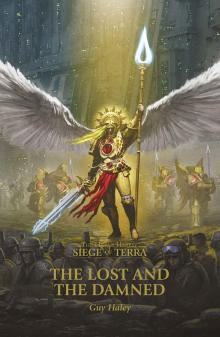 The Lost and the Damned (The Horus Heresy Siege of Terra Book 2)
The Lost and the Damned (The Horus Heresy Siege of Terra Book 2)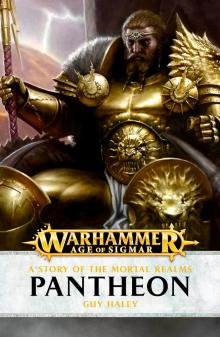 Pantheon
Pantheon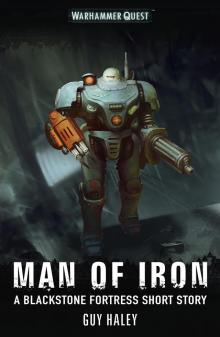 Man of Iron
Man of Iron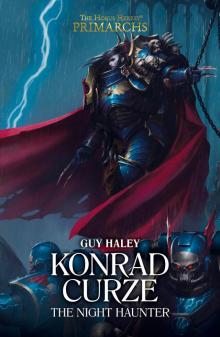 Konrad Curze the Night Haunter
Konrad Curze the Night Haunter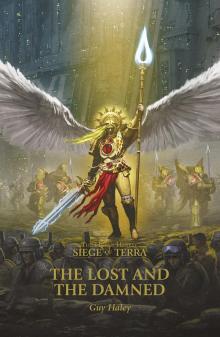 The Lost and the Damned
The Lost and the Damned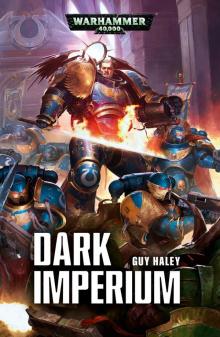 Dark Imperium
Dark Imperium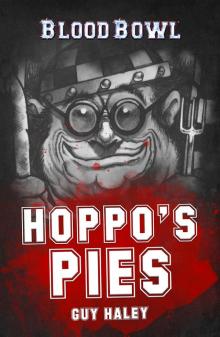 Hoppo's Pies
Hoppo's Pies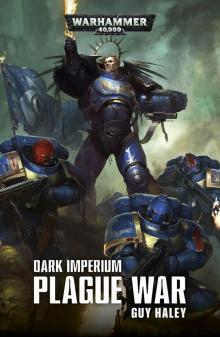 Dark Imperium: Plague War
Dark Imperium: Plague War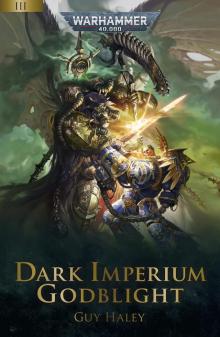 Dark Imperium: Godblight
Dark Imperium: Godblight Crash
Crash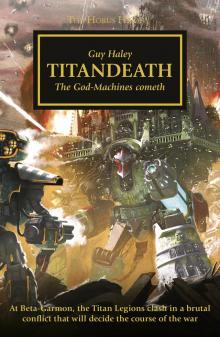 Titandeath
Titandeath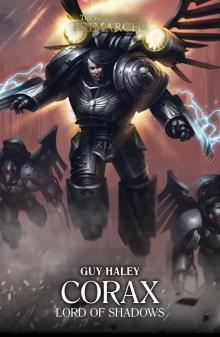 Corax- Lord of Shadows
Corax- Lord of Shadows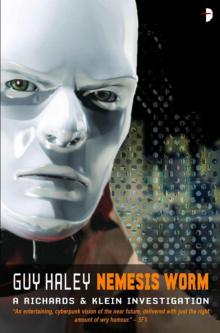 The Nemesis Worm
The Nemesis Worm Wolfsbane
Wolfsbane The Painted Count
The Painted Count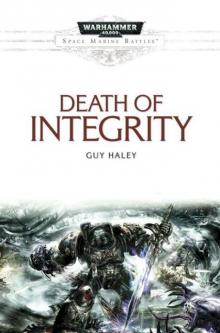 The Death of Integrity
The Death of Integrity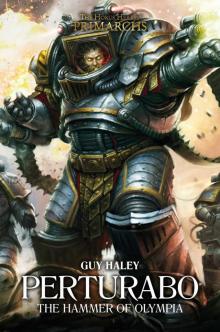 Perturabo: Hammer of Olympia
Perturabo: Hammer of Olympia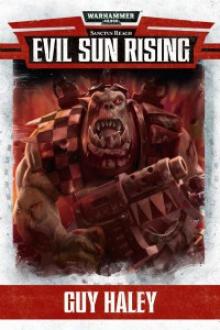 Evil Sun Rising
Evil Sun Rising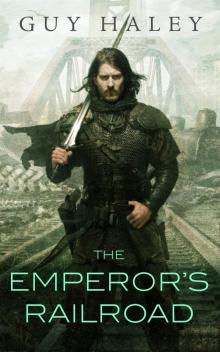 The Emperor's Railroad
The Emperor's Railroad Shadowsword
Shadowsword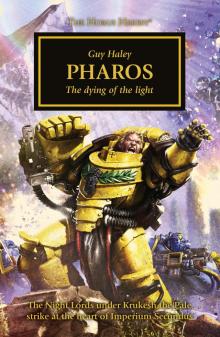 Pharos
Pharos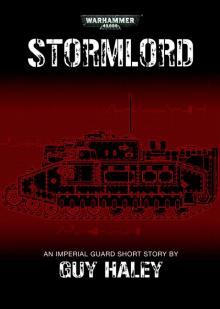 Stormlord
Stormlord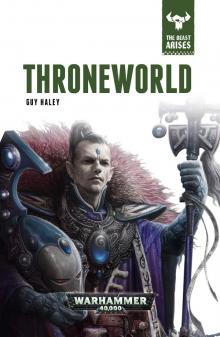 Throneworld
Throneworld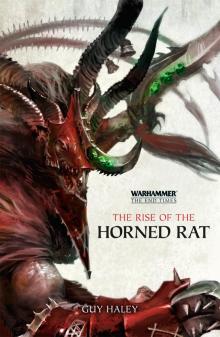 The End Times | The Rise of the Horned Rat
The End Times | The Rise of the Horned Rat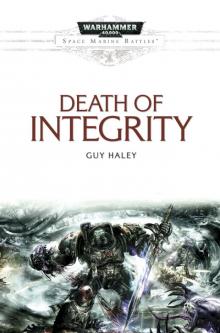 Death of Integrity
Death of Integrity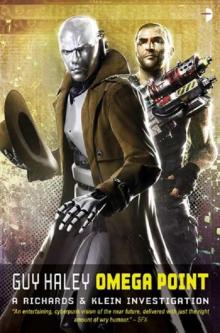 Omega Point
Omega Point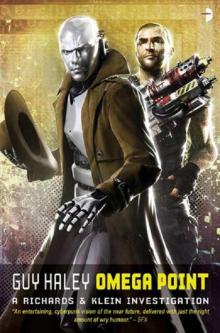 Omega point rak-2
Omega point rak-2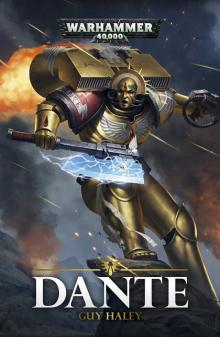 Dante
Dante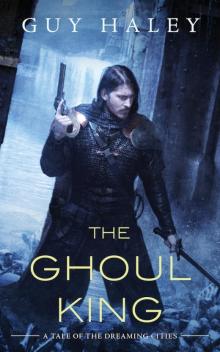 The Ghoul King
The Ghoul King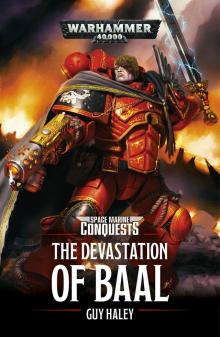 The Devastation of Baal
The Devastation of Baal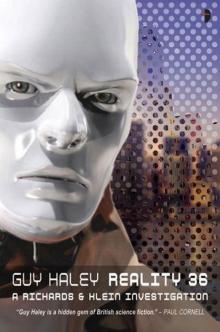 Reality 36: A Richards & Klein Novel
Reality 36: A Richards & Klein Novel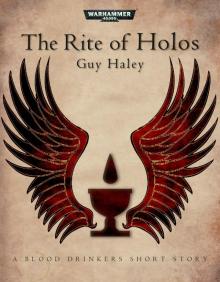 The Rite of Holos
The Rite of Holos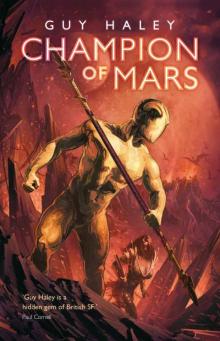 Champion of Mars
Champion of Mars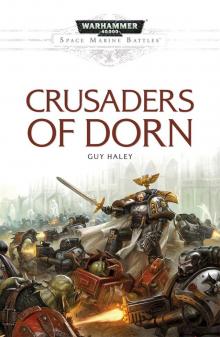 Crusaders of Dorn
Crusaders of Dorn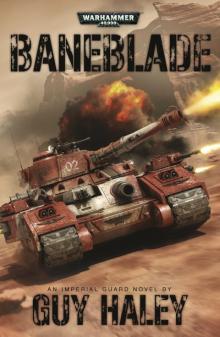 Baneblade
Baneblade